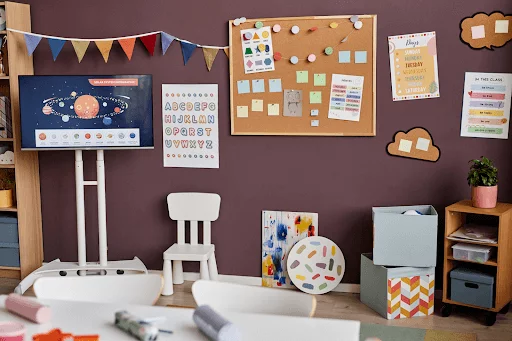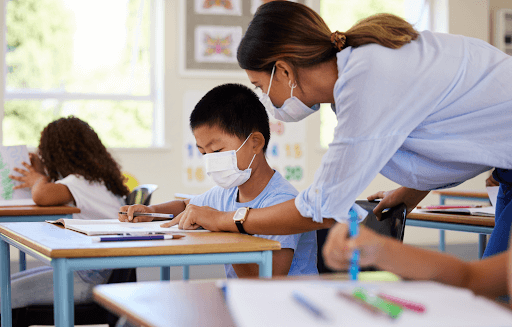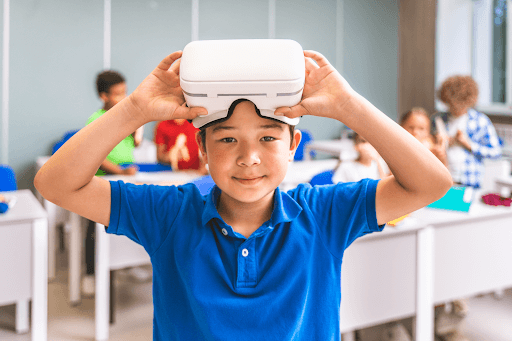
12 Jul Exploring Supportive Programmes and Facilities in Primary Schools

There are many factors to consider when choosing the right primary school for your child. Beyond academic excellence, parents seek schools that provide programmes and facilities catering to specific needs or interests. In Singapore, primary schools go the extra mile to offer a wide range of special programmes, resources, and facilities designed to enhance children’s education and overall development. In this article, we will explore the availability of these programmes focusing on bilingual programmes, sports, arts, and special education services. Therefore, parents can make informed decisions about their child’s educational journey.

1. Special Education Services
Inclusive education is a cornerstone of Singapore’s education system, and primary schools strive to create an inclusive environment where every child, regardless of their abilities, can thrive. Special education services are a vital component of this commitment. These services cater to students with diverse learning needs, providing individualised attention, specialised instruction, and support services tailored to their unique requirements.
Trained special education teachers work closely with students, using various teaching methodologies and adaptive techniques to ensure their academic progress. These teachers possess expertise in learning disabilities, autism spectrum disorders, attention deficit hyperactivity disorder (ADHD), and other developmental challenges. By leveraging their skills, they provide targeted interventions that address students’ specific learning needs and help them reach their full potential.
2. Leadership and Character Development
Developing strong leadership qualities and a well-rounded character is fundamental to education. Many primary schools in Singapore prioritise leadership and character development by promoting dedicated programmes and initiatives. These programmes aim to instil values such as integrity, empathy, resilience, and teamwork in students. They may include leadership camps, community service projects, character-building workshops, and mentoring programmes. Through these activities, students learn essential life skills, develop their interpersonal abilities, and cultivate a sense of responsibility towards their community. Students excel academically and become compassionate and ethical individuals who can positively impact society.

3. Technology Integration
In an increasingly digital world, schools recognise the importance of equipping students with technological skills and knowledge. Technology integration programmes focus on incorporating digital tools and resources into the learning process, enhancing students’ digital literacy and preparing them for the future workforce. These programmes may include computer coding classes, robotics workshops, multimedia production, and the use of educational apps and platforms to support learning. By engaging with technology, students develop problem-solving skills, critical thinking abilities, and creativity. They also gain an understanding of responsible digital citizenship and learn to navigate the digital landscape safely and ethically. Technology integration programmes ensure students are well-prepared to thrive in a technology-driven world and leverage digital tools for academic and personal growth.
4. Sports
Physical education and sports are essential to a child’s development, fostering not only physical fitness but also crucial life skills such as teamwork, discipline, and resilience. These facilities enable students to engage in a wide range of sports, including soccer, basketball, swimming, track and field, and more. Through participation in these sports programmes, children not only have fun and stay active but also gain valuable experiences that positively impact their overall growth.
Regular physical activity helps improve cardiovascular health, enhances muscular strength and endurance, and boosts overall fitness levels. Engaging in team sports develops teamwork, communication, and leadership skills, preparing your child for collaborative environments.
Children also have the opportunity to explore their passions and discover their talents. Whether scoring goals on the soccer field, making a splash in the pool or sprinting towards the finish line, sports provide avenues for self-expression and personal achievement.
5. Arts
The arts create opportunities for creativity, self-expression, and critical thinking skills. Many schools have well-equipped art studios, music rooms, and theatres where students explore different art forms such as drawing, painting, sculpture, music, dance, and drama. Participating in workshops further fuels their artistic growth as they encounter new perspectives, techniques, and creative processes. Children who collaborate with fellow students and professionals in the field, broaden their artistic repertoire and learn from diverse perspectives.
Under the guidance of passionate art educators, children not only learn about artistic concepts but also gain hands-on experience, honing their skills and expanding their artistic horizons.
When choosing a primary school for your child, it is essential to consider the availability of supportive programmes and facilities. By exploring and selecting a school that aligns with your child’s interests and needs, you can provide your child with a well-rounded and enriching education. This sets them up for academic, social, and personal development success.
At NASCANS, we strive to provide a nurturing and stimulating environment that fosters the growth and development of every child. Contact us to learn more about how NASCANS can be your partner in your child’s educational journey. Let’s unlock your child’s full potential and lay the foundation for a bright future together.


